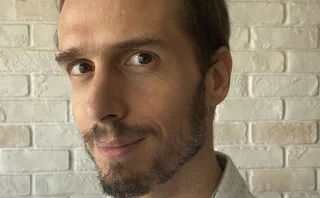
Best seeder: Tages Emerging Opportunities Fund I & LFP Absolute Return Selection
Tages’ hedge fund seeding business concentrates on spotting top early-stage managers

European Fund of Hedge Funds Awards 2016
Seeders must sometimes feel like the princess who has to kiss a number of frogs to find the prince. Among the many talented managers, finding the one with the right combination of talent, ability, business acumen and skill to create and maintain a sustainable business is tricky.
Spotting the right manager with this combination of factors and a strategy able to create true alpha and performance for investors is even rarer.
That is the business Mark de Klerk, head of seeding strategies, is running at Tages Capital. The firm runs two seeding and acceleration capital funds. The more traditional is the Tages Emerging Opportunities Fund that focuses on seeding hedge funds with between $25–50 million of locked capital using a Cayman-domiciled vehicle, together with non-locked capital, which can take day one investment to more than $100 million.
While each seeding arrangement is unique, investments typically are locked for two to three years after which the investment can be redeemed on standard investor terms. Revenue share participation is paid regularly over a seven- to 10-year period and in some cases Tages may participate for longer.
Equity-like protection is negotiated with each deal, including a redemption trigger if the fund breaches any of its criteria, such as the departure of the portfolio manager, failure to have a minimum of investments from the principal, a significant strategy change, going beyond the maximum drawdown limits and other criteria.
The second fund, LFP Absolute Return Selection, is focused on seeding Ucits-compliant funds with between €20-30 million through a French-domiciled structure. With its strong presence in Europe – and Italy and France in particularly – it was logical for the firm to look at how to fill the demand for more Ucits products running alternative strategies.
This platform, which it hopes to grow, is aimed at European institutional investors looking for Ucits products. "We can add value in terms of sourcing through existing strategic relationships with managers and distribution to our current clients as well as new ones, building out the offering available to our clients and adding diversification to existing investment portfolios," notes de Klerk.
We can add value in terms of sourcing through existing strategic relationships with managers and distribution to our current clients as well as new ones
Mark de Klerk
Guillaume Merle, senior portfolio manager and the man mainly responsible for launching LFP Absolute Return Selection, joined Tages from La Française following the merger of the two group's fund of funds businesses in 2014. LFP Absolute Return Selection seeds Ucits funds in exchange for discounted fees and a participation in the platform distribution fees. Separately, Tages launched its own Ucits platform in 2016, from which it seeds Ucits funds for established managers with $25-40 million each on a Luxembourg Sicav structure.
As is usual under a Ucits structure, capital is not locked but there is a revenue share penalty if shares are redeemed within a certain period of time. The platform covers a range of strategies including pan-Asia long/short equity, event driven, managed futures, market neutral and fixed income.
The Ucits product "fits many interests", says Merle and is a "perfect combination" for Tages to offer.
In addition to these two seeding vehicles, Tages has also seeded emerging market, frontier and global long/short equity fund mandates.
Both seeding vehicles adopt the same disciplined investment philosophy. This combines a top-down strategic, dynamic and tactical asset allocation with a bottom-up manager selection based on extensive contacts within the industry. Portfolio management is active, with a strong emphasis on risk monitoring and ongoing due diligence.
While the top-down approach is driven mainly by the strategy views of the investment team, manager selection is at the heart of the firm's success, says de Klerk. Tages believes its ability to generate performance for investors depends on its aptitude in spotting managers with superior risk-adjusted return potential and then monitoring their progress with the appropriate level of support and advice.
The selection process involves all the teams at Tages, with the head of the operational due diligence having a veto right on all seeding decisions.
As one of the few seeders in Europe, prime brokers, consultants, industry peers and other service providers are keen to discuss managers with Tages. Managers also approach Tages directly.
One of the better known seeding investments made by Tages was in Selwood Asset Management, a London-based manager focused on liquid investment-grade European and North American credit. The strategy aims to maintain a market-neutral profile and was launched in 2015 by credit specialist Sofiane Gharred after a long career in banking and investment management. Malcolm Butler, formerly of Comac Capital, joined him in 2016. Gharred and Butler head a team of 11 professionals.
"The potential convexity in the portfolio and low correlation to other strategies within our portfolios is particularly interesting for our investors," remarks de Klerk. "We were also attracted by the fact that the principals are building a long-term institutional business, as evidenced by the extensive experience of the non-investment team partners involved."
Diving deep
This careful consideration of potential managers is a hallmark of Tages. Before any investment is made, the team undertakes a "deep dive", checking references and confirming that the strategy offers interesting opportunities. Before making a decision to become involved, de Klerk will spend three to five hours with the manager, getting to understand the strategy in full and whether it is a good fit for the Tages portfolio.
Tages needs to be keen not just on the investment and business side of the company, but on the structure of the transaction and economic terms it negotiates. Each seeding deal, confirms de Klerk, is unique although they may have common elements.
This process is not quick and can take anything between six to 12 months to finalise from the first conversation. During the negotiations Tages may suggest changes, such as appointing a compliance consultant, adding a second prime once an assets under management (AUM) target is hit.
For investors with a long-term horizon, seeding or acceleration capital investments can help decrease hedge fund investment costs. They can also enhance returns by directly participating in a greater proportion of the industry economics, notes de Klerk.
By partnering with a strategic investor offering patient, seed or acceleration capital, the seed investor can work with the manager to develop the business infrastructure and distribution capabilities with alignment of interests on both performance and asset-raising.
"We want managers to focus on the fund, building a track record and not be distracted by trying to create an empire. For some managers and strategies, we are happy to look at broader business build-out opportunities as long as it does not affect our expected risk/return prospects on the existing investment," notes de Klerk. "Over the long term, it is in all our best interests for a manager to have a stable, diversified business, something that is crucial for longer-term survival and not just while we are invested."
We want managers to focus on the fund, building a track record and not be distracted by trying to create an empire
Mark de Klerk
While clearly a good investment opportunity, de Klerk and his team are not blind to the problems presented by early-stage managers. There are some common mistakes made by start-up managers, he says.
Top of the list is not recognising – and realising – how hard it is to build a business and partnership with appropriate qualified and experienced people so that the portfolio manager can concentrate on the investment side.
Managers also need to understand the current asset-raising environment, what is required and how that can significantly distract from the core activity of managing money. Many believe if the performance is strong, investors will automatically come to the fund. That does not happen and marketing and capital-raising are both activities that take time and can distract from the main business of the portfolio manager.
Every early-stage manager faces problems in building a business as well as the stresses that could impact a partnership structure. "If we go with a multi-portfolio manager structure, we really focus on interpersonal dynamics," says de Klerk.
At the same time, he believes it is important to motivate the right people with equity participation. In many start-ups, people are paid under market value. "It can be a mistake if you don't get the incentive structure right. For example, you need the right CEO and/or chief operating officer who is in the role for the longer term, focused on running the business while the portfolio managers can focus on investing. Equity partnership is a good way to align these individuals," he adds.
For Tages, selling the concept of seeding to investors is clear. "For the institutional investors able to harvest a liquidity premium by locking up capital, hedge fund seeding can provide excess returns over and above investing directly in hedge funds or via a fund of hedge funds portfolio," says de Klerk. "Participation in a seeding structure is an opportunity to add convexity – revenue participation can only ever be positive – to a hedge fund portfolio. The investment can also dampen volatility and benefit from access to some of the potentially high margins earned in this industry."
The revenue share participation could make up almost half of the return over the life of a seed investment if the right manager and strategy are selected, he adds.
While many investors are looking to allocate to early-stage managers, they often require a minimum asset base in which to invest. Increased regulation, rising operating costs, a shift to institutional investors and a decline in the number of traditional seed investors have made it increasingly difficult for early-stage managers to attract sufficient capital to build a long-term viable business.
This creates an opportunity for seeding funds like Tages, offering investors the benefit of investing in a potentially lower-risk acceleration capital opportunity with skilled managers managing the fund.
Tages Capital is an alternative asset management business active in hedge fund, seeding, Ucits and risk premia businesses with approximately $2.4 billion in AUM. It is the asset management arm of Tages Group, which has group assets of approximately $7.6 billion, Tages Capital manages alternative multi-manager and single manager portfolios as well as investment strategies including infrastructure and energy funds.
Tages Capital won best bespoke FoHF provider award as well as best seeder for Tages Emerging Opportunities Fund I and LFP Absolute Return Selection. In addition Salvatore Cordaro, partner and chief investment officer of Tages Capital, was given the European FoHF rising star award.
Only users who have a paid subscription or are part of a corporate subscription are able to print or copy content.
To access these options, along with all other subscription benefits, please contact info@risk.net or view our subscription options here: http://subscriptions.risk.net/subscribe
You are currently unable to print this content. Please contact info@risk.net to find out more.
You are currently unable to copy this content. Please contact info@risk.net to find out more.
Copyright Infopro Digital Limited. All rights reserved.
You may share this content using our article tools. Printing this content is for the sole use of the Authorised User (named subscriber), as outlined in our terms and conditions - https://www.infopro-insight.com/terms-conditions/insight-subscriptions/
If you would like to purchase additional rights please email info@risk.net
Copyright Infopro Digital Limited. All rights reserved.
You may share this content using our article tools. Copying this content is for the sole use of the Authorised User (named subscriber), as outlined in our terms and conditions - https://www.infopro-insight.com/terms-conditions/insight-subscriptions/
If you would like to purchase additional rights please email info@risk.net
More on Awards
Joining the dots: banks leverage tech advancements for the future of regulatory reporting
The continued evolution of regulatory frameworks is creating mounting challenges for capital markets firms in achieving comprehensive and cost-effectiveawa compliance reporting. Regnology discusses how firms are starting to use a synthesis of emerging…
Markets Technology Awards 2024 winners' review
Vendors spy opportunity in demystifying and democratising – opening up markets and methods to new users
Derivatives house of the year: JP Morgan
Risk Awards 2024: Response to regional banking crisis went far beyond First Republic
Risk Awards 2024: The winners
JP Morgan wins derivatives house, lifetime award for El Karoui, Barclays wins rates
Best product for capital markets: Murex
Asia Risk Awards 2023
Technology vendor of the year: Murex
Asia Risk Awards 2023
Best structured products support system: Murex
Asia Risk Awards 2023
Energy Risk Asia Awards 2023: the winners
Winning firms demonstrate resiliency and robust risk management amid testing times







